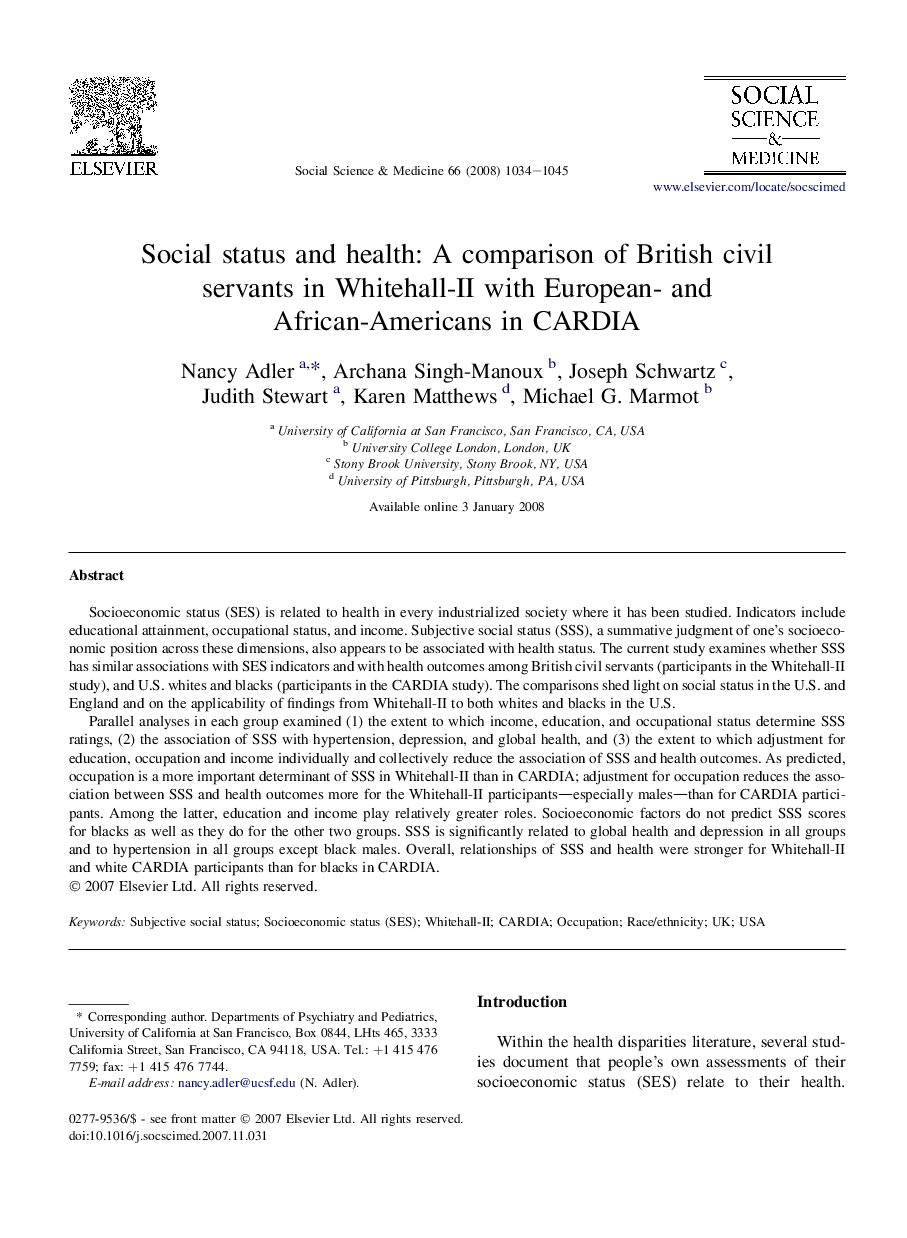| Article ID | Journal | Published Year | Pages | File Type |
|---|---|---|---|---|
| 953728 | Social Science & Medicine | 2008 | 12 Pages |
Socioeconomic status (SES) is related to health in every industrialized society where it has been studied. Indicators include educational attainment, occupational status, and income. Subjective social status (SSS), a summative judgment of one's socioeconomic position across these dimensions, also appears to be associated with health status. The current study examines whether SSS has similar associations with SES indicators and with health outcomes among British civil servants (participants in the Whitehall-II study), and U.S. whites and blacks (participants in the CARDIA study). The comparisons shed light on social status in the U.S. and England and on the applicability of findings from Whitehall-II to both whites and blacks in the U.S.Parallel analyses in each group examined (1) the extent to which income, education, and occupational status determine SSS ratings, (2) the association of SSS with hypertension, depression, and global health, and (3) the extent to which adjustment for education, occupation and income individually and collectively reduce the association of SSS and health outcomes. As predicted, occupation is a more important determinant of SSS in Whitehall-II than in CARDIA; adjustment for occupation reduces the association between SSS and health outcomes more for the Whitehall-II participants—especially males—than for CARDIA participants. Among the latter, education and income play relatively greater roles. Socioeconomic factors do not predict SSS scores for blacks as well as they do for the other two groups. SSS is significantly related to global health and depression in all groups and to hypertension in all groups except black males. Overall, relationships of SSS and health were stronger for Whitehall-II and white CARDIA participants than for blacks in CARDIA.
